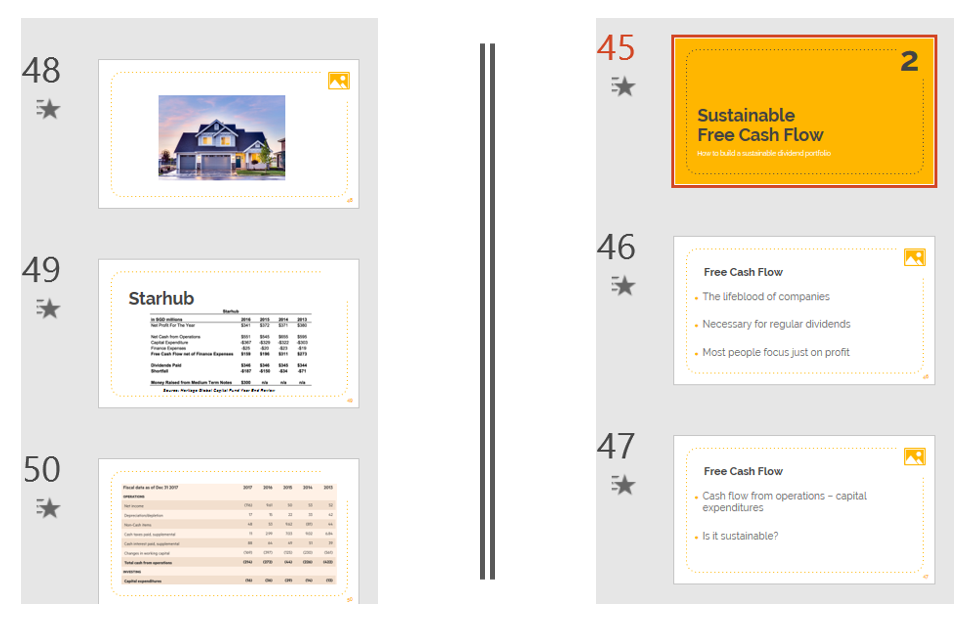Most people have heard the phrase cash is king. Let me embellish on that by saying – free cash flow is king.
Q3 hedge fund letters, conference, scoops etc
So just what is free cash flow?
Free Cash Flow (FCF) = Cash flow from operations – Capital Expenditures
You can sign up to watch an additional video further explaining free cash flow and a case study on both Hyflux and Starhub here:
How To Invest Profitably Like Warren Buffett: A Crash Course on Value Investing
What is free cash flow and why is it so important?
Getting to the heart of free cash flow
Now, there are a lot of different variations of the calculations of FCF but let’s try to get to the heart of it.
Free cash flow is simply the cash that is generated from your normal business operations after you net out your capital expenditures (purchases on property, plant and equipment).
These capital expenditures are normally much higher ticket in nature (think about the cost of opening a factory, buying a crane etc) and companies are normally able to depreciate them over a certain period of time.
The thing is that you still have to fork out cash today in order to do so.
Buying a car
Think about buying a car.
Most people buy a car with a car loan, and borrow the rest. The car is an asset that if you were to put on your own “personal balance sheet’ would go on the asset column.
You would expense off a certain amount each year as the usefulness of the car decreases (that’s your depreciation).
Bear in mind that this is an accounting measure and it may well be the case that at the end of let’s say ten years, the depreciated value of the car is zero but the car still works.
The key thing to note is that at the point you purchased the car, you had to pay for it fully and that there is a 100% cash outflow on your end.
Free cash flow
Free cash flow is critical for companies to pay down debt, continue expanding and what probably concerns most people here – pay dividends.
Without sustainable free cash flow, companies will not be able to do so.
There are many variations of this idea.
For example, REITs are mandated to distribute 90% of their distributable income (a variation of free cash flow). But because it distributes so much of its income, it has to normally raise money from unit-holders and bank debt if it wants to acquire new properties to grow its portfolio.
Property developers have very lumpy cash flows because of the nature of property development which can take years to pan out.. and that is why many of them have income generating investment property portfolios to smooth out that cash flow cycle.
Ending Thoughts:
At the end of the day, cash flow is what matters most to companies and understanding the key difference between cash flow and profits are the key to sustainable dividend investing.
Article by Jun Hao, The Asia Report

